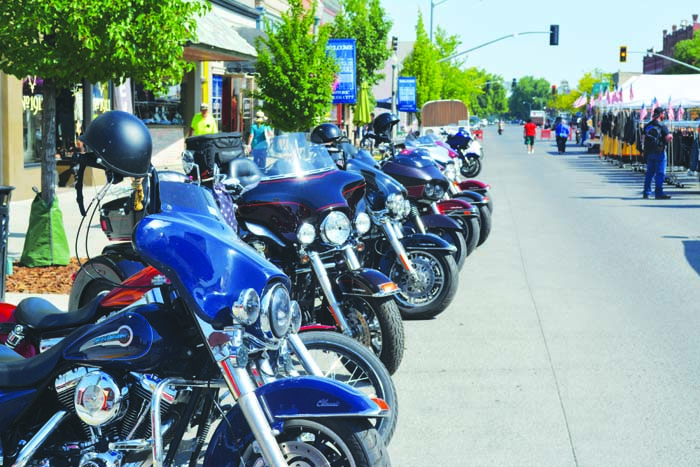Letter to the editor for Oct. 26, 2023
Published 11:45 am Wednesday, October 25, 2023
I joined the back to the land movement the day I walked into Balducci’s in Manhattan, New York (where I was born), priced sun-dried tomatoes at $20 a pound, and thought, “I don’t want to live here at the expensive end of the food chain, I want to grow food at the source of the food chain.” So began a lifelong quest to produce food.
I emigrated from New York to rural Ash Valley, Oregon, population 100, and started making mistakes. My first garden was pathetic. I knew nothing about soil fertility until an Ash Valley farm wife said, “You really want to learn to garden?” She showed up the next day with a pickup truck and a couple of shovels, drove to a dairy barn, and we shoveled a pickup load of cow manure. We pushed half that load onto what became my first decent garden, thanks to a fence my husband built. I shoveled manure into raised beds, because Douglas County’s Coast Range gets 120 inches of rain per year. Raised beds drain well, so plant roots can breathe. (In dryland gardens, common in Tucson, we grow food in pits filled with organic matter to soak up moisture; and we set up rainwater harvesting to retain every drop of water.)
I gardened in Ash Valley, Olympia, Tucson, Homer and now Baker. In Tucson I took the permaculture design course and learned to factor water, sun, wind, fire, animals and people into garden design. Advised by my permaculture design teacher to master some aspect of permaculture, I chose human manure composting. (Human manure composting is an essential part of a comprehensive solution to homelessness, but that is another essay.)
After Arthur Sappington and I met (in 1990) I had a peerless scientist counselor on watershed management, soil fertility, composting, herd and bird management, raising and processing crops for market, natural resource law, mining law, and natural resource economy.
Arthur is deeply practical. While many scientists remained in academia, Art came from the land, grew up in field, forest, and orchard, and went right back to the land as soon as he graduated from UC Berkeley’s College of Natural Resources. We identify as constitutional producers. Our attitude towards government “experts” who presume to regulate producers, is “get out of our way so we can produce.”
Arthur and I are spiritual allies as well. Our living spirituality springs from our experience in nature. Life in nature brings you face to face with the intricacy and beauty of Creation. Clearly Creation is designed, not an accident. When you manage the life cycle from manure to soil to plant to kitchen to table to manure to compost, you know how life works. You learn from your mistakes. Some crops succeed, some fail. “Next year we’ll do better.” So long as you have a piece of land, you can feed family and community.
We live in times when farmers and ranchers are vilified and attacked, driven out of business, lands taken, dictated to how many animals we may raise, how much carbon dioxide we may contribute to earth’s atmosphere, how much methane our herds may fart, how much nitrogen our field runoff may contain, all in the name of protecting the natural environment.
This global attack on farmers, ranchers and peasants isn’t about protecting the environment. It’s about control. Globalists bidding to control humanity can’t stand freedom in any form. So we are subjected to media incantations like, “You will own nothing and be happy.” Impossible! Owning land, owning one’s labor and owning the fruits of one’s labor are elemental forms of freedom. He who owns neither land nor the work of his hands is desperate and subject to tyranny.
Fortunately, there is a global movement called food sovereignty based in mankind’s God-given natural, constitutional, economic right to produce food and trade locally. No government may interfere. From our land and the work of our hands, we rural people produce and deliver what humanity needs: water, food, lumber, fuel, fiber and minerals.
As Wendell Berry wrote, “The best conserver of land in use will always be the small owner or operator, farmer or forester or both, who lives within a securely placed family and community, who knows how to use the land in the best way, and who can afford to do so.”
Check out bakercountyoregonfoodchoice.com to read how food sovereignty works and understand the God-given, constitutional and lawful authority for food sovereignty.
Lindianne Sappington
Baker City







